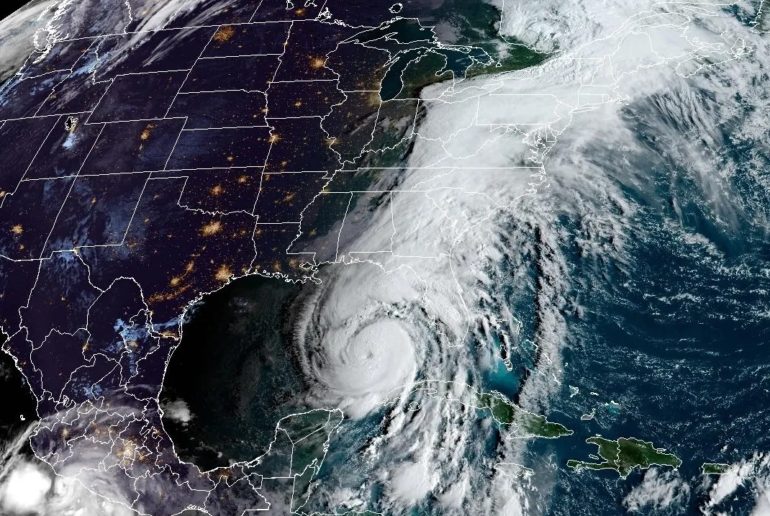The hallways were filled with my fellow classmates as we squished in one by one. Our hands covered our necks as the teachers walked up and down. Suddenly the P.A. system announced, “Thank you students for participating in the hurricane drill. Classes will resume shortly.” And just like that, chatter and normal shenanigans proceed again. Like most American students, I partook in a lot of disaster drills, but I have never experienced a disaster before. However, just because it has never happened to you does not mean it won’t.
Most of the time I watch the news, I just shake my head at how unfair and gruesome life can be. And then, admittedly I move on with my day. Except this time, when I heard about the hurricane and then subsequently the next one that followed, I could not shake the darkness that came alongside it. Why do I feel this way now? Why do I feel a lot stronger towards this tragedy? Why do I feel like the exchange of my compassion should have more weight?
As I become older, I find that the way I care and show compassion has changed. Back when I was younger, I would look at the news and see the horrible events happening. My heart automatically knew how I felt and in a way, I would logic my way through emotions of grief, even though I had nothing to do with the event. It was a cognitive response. However, as I became older, at some point my brain and heart flipped a switch. Instead, I have a more empathetic view. I can almost feel the feelings of the other person, and sometimes even seeing someone cry can make me tear up as well. So when I read about the events of Hurricane Helene, I couldn’t shake the feeling of what my younger self would feel mixed in with how my current self faces tragedies.
According to The National Library of Medicine, I am not alone. In a 2023 article by Paola Guariglia, Massimiliano Palmiero, Anna Maria Giannini and Laura Piccardi titled “The Key Role of Empathy in the Relationship between Age and Social Support,” they state: “It is well-established through research that older individuals generally exhibit lower levels of cognitive empathy when compared to younger individuals. However, it has been observed that older adults tend to display higher levels of emotional empathy [29,31]. Previous studies have shown how cognitive empathy also varies as a consequence of age since older adults (usually older than 64 years) obtain lower scores on cognitive empathy in comparison with younger people (with age ranges between 17 and 56 years).”
So, back to my question, why now? Why does this trigger such strong emotions? All around the world, there are tragedies just like the ones we are facing at this very moment. In fact, from the Global Health Education and Learning Incubator at Harvard University, there is a world risk report that found “Like last year, this year’s findings show Philippines, Indonesia and India have the highest overall disaster risk. The 2024 report highlights how crises like pandemics, extreme weather events and conflict interact with and amplify one another, creating a complex web of risks that can overwhelm existing disaster risk management.” Sometimes it’s hard to invest in an issue that is not in proximity to where you are. It’s easy to just shut it off and not think about it. Or when it feels like there is just so much tragedy happening at the same time, your heart goes numb. But when you know someone involved, or if you can rummage through the repercussions with your own hands, you can’t put it away. It’s a harsh reminder of the power this earth has and how just like that, we could fall victim to its revenge. Just because it is not in your backyard does not mean it does not matter. Hurricane Helene was a reminder to me of how fragile we are and how delicate our ecosystem is. Don’t let your heart completely flip its switch on empathy, because you never know if you are next.




